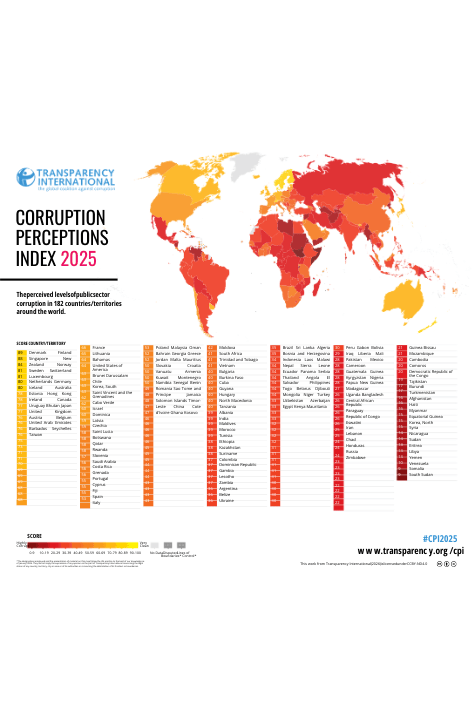Regulatory Developments and Potential Outcomes: Examination of The Draft Amendments Regarding the Regulation of Crypto Assets and Crypto Asset Service Providers in Turkey's Capital Markets Law
21.08.2023
Introduction
The increasing scope of transactions involving cryptographic assets has reached significant economic dimensions. As a result, governments have proactively adopted a multifaceted approach, accelerating their efforts to establish comprehensive regulatory frameworks in this field.
Initially, many governments perceived crypto assets as potential tools for money laundering and financing terrorism, thereby viewing them as a threat to national security. However, as the inherent benefits of these assets, built on blockchain technology, became apparent to governments, a paradigm shift took place.
Consequently, an increasing number of countries have started developing their own digital currencies and some have even begun accepting various forms of cryptocurrencies as payment. Given the distinct difference between crypto assets and the conventional instruments prevalent in centralized financial systems, achieving unity in resolving legal dilemmas and regulating these assets has become a valid necessity.
Unlike regulatory developments in Europe, Turkey has not yet established a comprehensive regulatory framework for cryptographic assets. However, it is important to appreciate the dedicated efforts of the Capital Markets Board ("CMB") in formulating comprehensive regulations in this field. Recent news in the media has shed light on the emergence of a draft law called the Cryptographic Asset Law, which is claimed to include anticipated regulatory measures. This article aims to examine the potential regulations envisaged by the draft legislation, relying on both the news published in the media and the existing legal doctrine. It also examines the potential consequences that these regulations may bring about.
Executive Summary
This article examines the draft amendment regarding the regulation of crypto assets and crypto asset service providers in Turkey's Capital Markets Law. It highlights the increasing economic significance of transactions involving crypto assets and the proactive approach taken by governments to establish comprehensive regulatory frameworks in this field.
Unlike regulatory developments in Europe, Turkey has not yet established a comprehensive regulatory framework for crypto assets. However, the Capital Markets Board in Turkey has made dedicated efforts to formulate regulations in this field. The article discusses the emergence of a draft law called the Regulation of Crypto Assets and Crypto Asset Service Providers in Turkey's Capital Markets Law, which aims to introduce anticipated regulatory measures. It highlights the need for a comprehensive regulatory framework in Turkey and acknowledges the efforts of the Capital Markets Board in formulating regulations in this evolving field.
Definitions
The precise definition of cryptographic assets is of great importance as it is simultaneously determined by specific regulatory institutions that have authority over these assets. Therefore, it is crucial to clarify the potential regulations, particularly in terms of the introduced definitions.
It is observed that the proposed "Draft Amendment on the Regulation of Cryptographic Assets and Cryptographic Asset Service Providers in the Capital Markets Law," as reported in the media, introduces significant definitions to the CMB. These definitions are stipulated below in order:
a. Cryptographic Asset:
Before the concept of cryptographic assets, the Regulation on the Non-Use of Cryptographic Assets in Payments defined cryptographic assets as "intangible assets that are created virtually using distributed ledger technology or similar technology and distributed over digital networks, but not classified as fiat money, scriptural money, electronic money, payment instrument, securities, or other capital market instruments." This definition explicitly stated that cryptographic assets cannot be classified as fiat money, scriptural money, electronic money, payment instruments, securities, or capital market instruments, thereby significantly restricting the scope of use for cryptographic assets.
In the possible draft regulation by the Capital Markets Board, the usage scope of cryptographic assets has been expanded with the newly introduced definition as "intangible assets that are created virtually using distributed ledger technology or similar technology, can be stored, distributed over digital networks, and represent value or rights." The statement that cryptographic assets cannot be classified as fiat money, scriptural money, electronic money, payment instruments, securities, or capital market instruments has been removed, thereby broadening the usage scope of cryptographic assets. Furthermore, the adoption of the term "cryptographic assets" instead of "cryptocurrencies" in this specific definition, as determined by the legislator in our jurisdiction, is in line with European norms. The European Union has implemented regulations on crypto assets through the "Markets in Crypto-assets, and Amending Directive ("MICA"), and the definition provided here bears notable similarities to the definition provided in our regulatory framework. In particular, the inclusion of the concept of digital value sets this definition apart from the European definition.
Indeed, while the definition introduced in the possible draft regulation provides a broader scope of applicability, the use of the term "intangible asset" still continues, implying the limitation of being considered as a non-material value.
b. Cryptographic Asset Service Provider and Cryptographic Asset Trading Platform
The term "Cryptographic Asset Service Providers" was first used in our legislation in the regulation titled "Measures for the Prevention of Money Laundering and Financing of Terrorism" published by the Financial Crimes Investigation Board ("MASAK") on May 1, 2021. With this regulation, cryptographic asset service providers became subject to reporting obligations to MASAK. Three days after the publication of the regulation, the "Basic Principles on Obligations Related to the Prevention of Money Laundering and Financing of Terrorism" guide was also published. In this guide, cryptographic asset service providers were defined as organizations that facilitate the buying and selling of cryptographic assets through electronic trading platforms.
In the guide that serves as a guideline for Cryptographic Asset Service Providers, it is stated that cryptographic assets are defined as "intangible assets that are created virtually using distributed ledger technology or similar technology, distributed over digital networks, but not classified as fiat money, scriptural money, electronic money, payment instruments, securities, or other capital market instruments," as stated in the "Regulation on the Non-Use of Cryptographic Assets in Payments" published by the Central Bank of the Republic of Turkey.
With this development, the first step was taken by our country to protect cryptographic asset users and service providers. In the possible draft regulation, cryptographic asset trading platforms are referred to as "organizations where cryptographic asset buying and selling transactions are conducted." Cryptographic asset service providers, on the other hand, are defined as "organizations providing cryptographic asset trading platforms, cryptographic asset custody services, and organizations designated to provide services related to cryptographic assets in accordance with this Law and the regulations to be made based on it."
Indeed, with the dual definition provided, a clear distinction is made between cryptographic asset service providers and cryptographic asset trading platforms. This distinction is significant because the cryptocurrency trading platforms that are actively operating in our country are typically established as legal entities under the Turkish Commercial Code, most commonly as joint-stock companies. Currently, the Ministry of Trade has the authority to supervise and regulate joint-stock companies. Therefore, it can be said that, at present, cryptocurrency trading platforms will be supervised and regulated by the Ministry of Trade. However, with the proposed changes, it can be understood that both cryptographic asset service providers and cryptographic asset trading platforms defined by the Capital Markets Board will be supervised and regulated by the Board.
It should also be kept in mind that the term "cryptographic asset service provider" differs from the definition of "Virtual Asset Service Providers ("VASPs") used by the Financial Action Task Force ("FATF"), an intergovernmental organization of which Turkey is a member. While FATF uses the term "virtual asset," Turkish legislation uses the term "cryptographic asset." The term "cryptographic asset" can be limiting and may become insufficient to protect users and service providers in light of advancing technology. Therefore, it would be beneficial for Turkish legislation to adopt a broader definition, such as "virtual asset," to encompass the evolving landscape and provide adequate protection.
c. Wallet:
Cryptocurrencies developed with blockchain technology are digital assets and are stored by users in electronic wallets. In the Draft Amendment on the Regulation of Crypto Assets and Crypto Asset Service Providers by the Capital Markets Board of Turkey, the definition of wallets is also included. The definition in the draft states, "Software, hardware, systems, or applications that enable the transfer of crypto assets on a distributed ledger technology or similar technology and the online or offline storage of private and public keys related to these assets." By including the terms "software, hardware, systems, or applications that enable online or offline storage," the recognition of wallet types, namely hot wallets and cold wallets, would be advantageous in reducing potential disputes.
Regulatory and Supervisory Authority
The Capital Markets Board has been granted the authority, along with the proposed amendment draft on the Regulation of Crypto Assets and Crypto Asset Service Providers in the Capital Markets Law mentioned in the media, to establish regulatory measures regarding crypto assets that provide specific rights associated with capital market instruments, to issue specific and general decisions, and to implement measures and sanctions.
Furthermore, the CMB is also authorized to determine the principles regarding the issuance of capital market instruments in the form of crypto assets and to exempt them from the provisions specified in the relevant articles.
The CMB is authorized to stipulate that the sale or distribution of crypto assets utilizing distributed ledger technology or similar technological infrastructure, whose value is inseparable from this technology, can be conducted through crowdfunding methods without establishing a partnership or borrowing relationship, subject to compliance with the procedures and principles determined by the Scientific and Technological Research Council of Turkey ("TÜBİTAK"). In our opinion, the CMB has indicated the need for specific permission for ICOs ("Initial Coin Offerings") and foresees that the procedures and principles will be determined by the CMB.
What Can Crypto Asset Service Providers Expect from the New Regulation?
Currently, there is no legislation in our country that specifically outlines the establishment, operation, and regulatory procedures for crypto asset service providers. As a result, obtaining permission or a license is not currently a requirement for establishing a crypto asset exchange.
Although there are no specific licensing or permission requirements for crypto asset platforms, as mentioned earlier, it should be noted that these platforms are subject to the legislation of the MASAK in combating money laundering involving crypto assets. Therefore, they are obliged to take all necessary measures to prevent and address such illegal activities.
The Draft Amendment to the Capital Markets Law regarding the regulation of crypto assets and crypto asset service providers encompasses numerous innovations that are relevant to platforms. The following are some of these innovations that will be highlighted:
1. Authority of the Board, Central Bank, and Ministry of Trade
The Capital Markets Board is empowered to establish regulatory procedures concerning crypto assets that provide specific rights related to capital market instruments. It is authorized to make both specific and general decisions, implement measures, and impose sanctions. The Central Bank of the Republic of Turkey is authorized to enact similar regulations for crypto assets that fall within the scope of payment services and electronic money legislation, considering them as electronic money. The Ministry of Trade is entrusted with the authority to regulate, decide upon, implement measures, and impose sanctions on crypto assets that serve the purpose of accessing or representing a product or service.
2. Applicability of the Legislation
Crypto assets will be subject to the relevant legislation when they provide the same elements and rights, regardless of the medium through which they are offered (written, verbal, etc.).
3. Regulation of Crypto Asset Service Providers
The Capital Markets Board is responsible for determining the procedures and principles regarding crypto asset service providers, as well as the buying, selling, transferring, and storage of crypto assets through platforms.
4. Mandatory Authorization for Platforms
The establishment and operation of crypto asset trading platforms require obtaining authorization from the CMB. Platforms are exclusively required to engage in activities determined by the CMB. The CMB has the authority to establish regulations regarding the establishment process of platforms, their partners, managers, staff, capital and capital adequacy, obligations, information systems, technological infrastructure, share transfers, permitted activities, temporary or permanent suspension of activities, and other principles that they must comply with during their operations.
5. Determination of Tradable Crypto Assets
Crypto asset platforms have the authority to determine the crypto assets that can be traded on their platforms. The principles and rules regarding platforms, including the determination of tradable crypto assets, can be regulated by the Board.
6. Termination of Trading
Platforms are required to establish a written procedure for the termination of trading activities. The Capital Markets Board is also responsible for creating a written procedure in this regard.
7. Regulatory Authority
The Capital Markets Board has the authority to regulate the principles and rules regarding platforms, including the determination of tradable crypto assets. However, it should be noted that these regulations do not imply any guarantee by the government or any public institution.
8. Transparency and Traceability
In order to enhance transparency and traceability, customers' access to wallets for crypto asset transfers and the records of bank accounts involved in these transfers should be maintained in a traceable manner by authorized institutions.
9. Customer Responsibility
Customers are responsible for storing their crypto assets in their wallets. Any losses arising from customers not storing their crypto assets in their wallets are the responsibility of the customers, subject to the provisions regarding the responsibilities of crypto asset service providers.
10. Cash Storage
Cash belonging to customers must be held in banks determined by the Banking Regulation and Supervision Agency ("BDDK") or other institutions authorized by the Capital Markets Board.
11. Asset Segregation
The cash and crypto assets held by customers at crypto asset service providers are kept separate from the assets of the service providers, and records are maintained in accordance with this provision. The crypto assets and cash held by service providers cannot be seized even for public claims arising from the debts of the service providers or customers. Customers' assets cannot be pledged, included in bankruptcy estates, or subject to precautionary measures without prior written consent.
12. Customer Identification
Platforms are obliged to verify the identities of their customers in accordance with the Law on the Prevention of Money Laundering and relevant regulations before establishing a contractual relationship.
13. Investment Advisory and Portfolio Management
The procedures and principles regarding investment advisory and portfolio management for crypto assets are determined by the Capital Markets Board.
14. Dispute Resolution
Disputes between crypto asset trading platforms and their customers, as well as transactions conducted on the platforms, are subject to general provisions. Granting operating permission to platforms by the CMB does not imply that transactions are guaranteed by the government.
15. Price Formation
Prices are freely determined on platforms. However, except for transactions involving crypto assets traded in foreign markets, actions and transactions that are unreasonable and cannot be economically justified, and that may disrupt the trust, transparency, and stability of transactions on the platforms, are subject to the provisions of Article 104 of the Capital Markets Law ("the Law") by analogy. It has been stated that price freedom is adopted.
Crypto asset service providers are held responsible for illegal activities and potential losses arising from their inability to fulfill crypto asset delivery obligations. This includes losses resulting from cyber-attacks, technical failures, operational errors, or abuses by service provider members.
In addition, crypto asset service providers are subject to specific provisions stipulated in the Capital Markets Law. Unless expressly stated otherwise, they are not exempt from other provisions of the Law. The Law aims to regulate and clarify matters related to crypto asset service providers, and in cases where there are no specific provisions, Article 128 of the law may be applicable.
The Capital Markets Board has the authority to establish regulatory procedures and guidelines for crypto asset service providers and can make decisions regarding their implementation. This includes addressing unauthorized transactions, unauthorized crypto asset services, and illegal investment advisory and portfolio management activities related to crypto assets.
Conclusion
The global landscape surrounding crypto assets is rapidly evolving, and governments worldwide recognize the need for comprehensive regulatory frameworks to manage these digital assets. Although Turkey has not yet established a comprehensive regulatory framework for cryptographic assets, the efforts of the Capital Markets Board to create the Crypto Asset Law Draft are commendable. The draft legislation aims to address the legal dilemmas associated with crypto assets, providing an opportunity for Turkey to embrace this emerging technology while safeguarding national interests and investor protection. As the potential consequences of these regulations unfold, striking a balance between encouraging innovation and mitigating risks is crucial. The upcoming years will undoubtedly shape Turkey's approach to crypto assets, and stakeholders should closely monitor developments and adapt to the evolving regulatory environment.
Bibliography
- Av. Dr. Dr. Önder Perçin, Rıfat Deregözü , Av. Hüseyin İlik , Ahmet Türkay Varlı , Dr. Öğr. Üyesi Erkan Eren , Pınar Erçetin , Av. Dr. Davut Gürses , Av. Ayça Aktolga Öztürk, Sorularla Fintek: Elektronik Para Kuruluşları ve Ödeme Kuruluşları Açık Bankacılık-Kriptopara Ve Kriptopara Alım Satım Platformları, 1.baskı, onikilevha,2021
- ORKUN, Kripto varlıkların vergilendirilmesi, 1.baskı, Onikilevha Yayınları,2022
- CryptoAsset Reporting Framework and Amendments to the Common Reporting Standard, OECD, 22March-29 April 2022
- Kripto Varlıklarda Düzenleme Arayışı Çalıştayı, Siyasal Bilgiler Fakültesi Yayınları, Banka ve Ticaret Araştırma Enstitüsü, 89 Temmuz 2021
- https://www.cointree.com/learn/cryptocurrencyexchange-vs-stock-exchange/
- https://bctr.org/kriptovarlik-hizmet-saglayicisi-kavrami-ve-vasplerin-yukumlulukleri-22062/
- https://merlinone.com/whatis-a-digital-asset/
- https://www.scb.co.th/en/personalbanking/stories/digital-asset.html
- https://www.investopedia.com/terms/c/cryptocurrency.asp
- https://tr.investing.com/education/terms/emtianedir-200222816
- https://bthukuku.org/2021/04/19/odemelerde-kripto-varlik-kullanilmamasina-iliskin-yonetmelik-hakkinda-degerlendirmeler/
- https://tr.tradingview.com/news/muhabbit:03c457b9f:0/
- https://eur-lex.europa.eu/legal-content/EN/TXT/?uri=CELEX%3A52020PC0593



